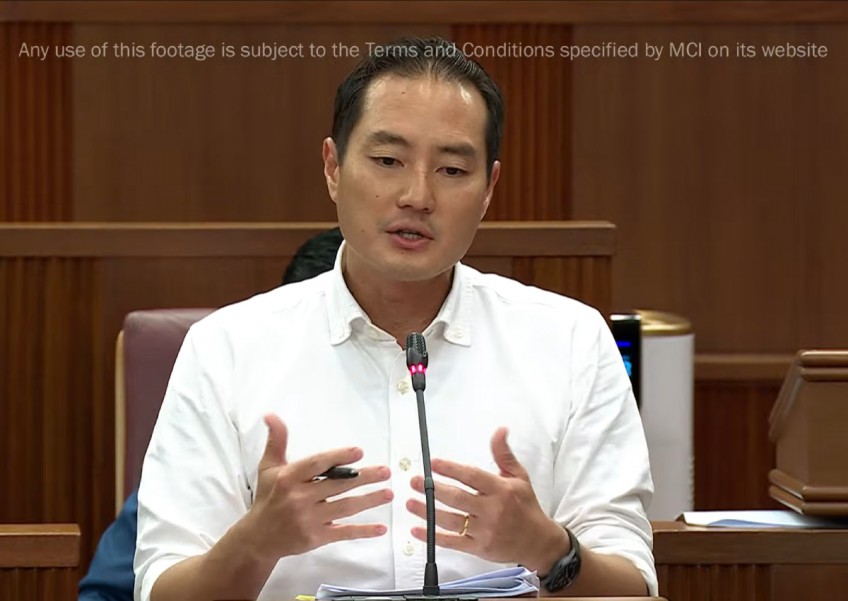MPs raise concerns about potential neighbour disputes as MND relaxes occupancy cap


 PUBLISHED ONJanuary 09, 2024 9:55 AMByChing Shi Jie
PUBLISHED ONJanuary 09, 2024 9:55 AMByChing Shi JieSeveral MPs have raised questions about the Ministry of National Development's recent move to temporarily relax the occupancy cap in HDB flats.
Among them, MP Cheryl Chan (PAP-East Coast) asked whether the increase in occupants allowed in four-room or larger flats - from six to eight - will result in more neighbour disputes.
Leader of Opposition Pritam Singh also expressed concerns, asking whether the housing board is sufficiently equipped to resolve any rise in complaints from tenants or the community.
Responding to their questions in Parliament on Tuesday (Jan 9), Senior Minister of State for National Development Tan Kiat How said that his ministry has placed measures to mitigate potential issues that arise from the increase in maximum rental occupancy .
"HDB undertakes routine inspections to ensure that homeowners and tenants do not cause serious disamenities to the public," Tan said.
He also pointed out that over the past five years, instances of complaints relating to nuisance caused by tenants renting HDB flats or bedrooms constituted 1.5 per cent of total feedback from neighbours.
Tan added that the housing board adopts a meditative approach to deal with disputes between neighbours and tenants - by advising them to be mindful of causing disturbance to others.
Additional assistance, such as an inter-agency community dispute management framework, and the Community Mediation Centre, are also available.
"In instances where tenants cause serious disamenities, HDB will take firm action by revoking the approval for the rental of the flat or bedrooms," Tan said.
HDB took action against errant home owners - an average of 115 cases a year over the past five years - who were caught renting their flats without authorisation, he said. These include those who have breached the occupancy cap.
In a supplementary question, MP Foo Mee Har (PAP-West Coast) asked if HDB's "flat infrastructure" can cope with the new occupancy cap for three years.
"Who will be responsible for covering the cost associated with higher maintenance in enhancing the facilities in affected HDB blocks?" she asked.
Foo also called for Tan to elaborate on how his ministry intends to preserve the "Singaporean character" in HDB flats after increasing the number of tenants allowed.
In response to her question, Tan said that only about five per cent of approximately one million flats in Singapore are rented out.
"And of these 58,000 flats that are rented out, only 16 per cent are rented out to six unrelated occupants," Tan said.
"We don't expect the operation and maintenance costs of common areas and facilities such as lifts and playgrounds to go up significantly," he added.
Agreeing with the need to preserve the "Singaporean character" in HDB flats, Tan said that his ministry had placed quotas stipulating that only 11 per cent of an HDB block and eight per cent of neighbourhoods can be made up of non-citizens.
In a joint statement by HDB and the Urban Redevelopment Authority (URA) last December, they said that owners of four-room or larger flats and private homes of at least 90 sqm will be allowed to house up to eight unrelated people, up from the previous cap of six.
This move to temporarily increase the rental occupancy cap for three years is meant to help cool the home leasing market, HDB and URA added.
"We will review the need to extend this temporary measure depending on the rental situation in end-2026," said National Development Minister Desmond Lee in a Facebook post on Dec 20.
ALSO READ: Hougang resident blocks corridor with sofas and cabinets, town council to remove items